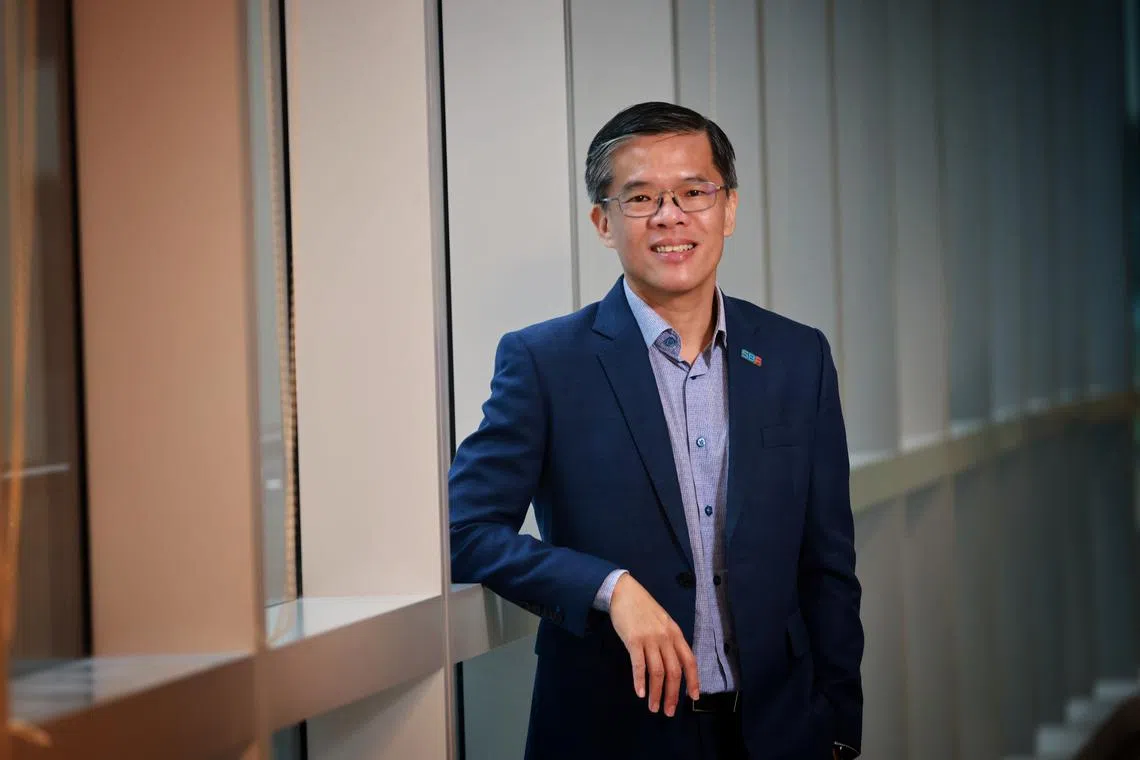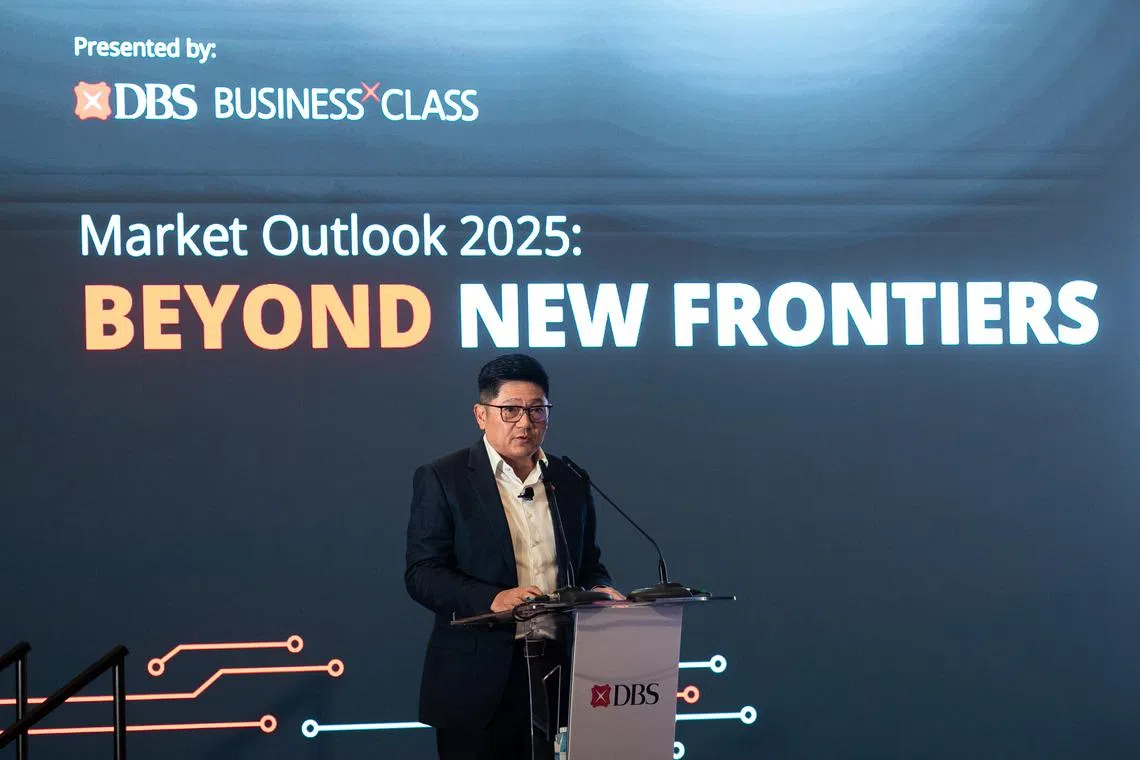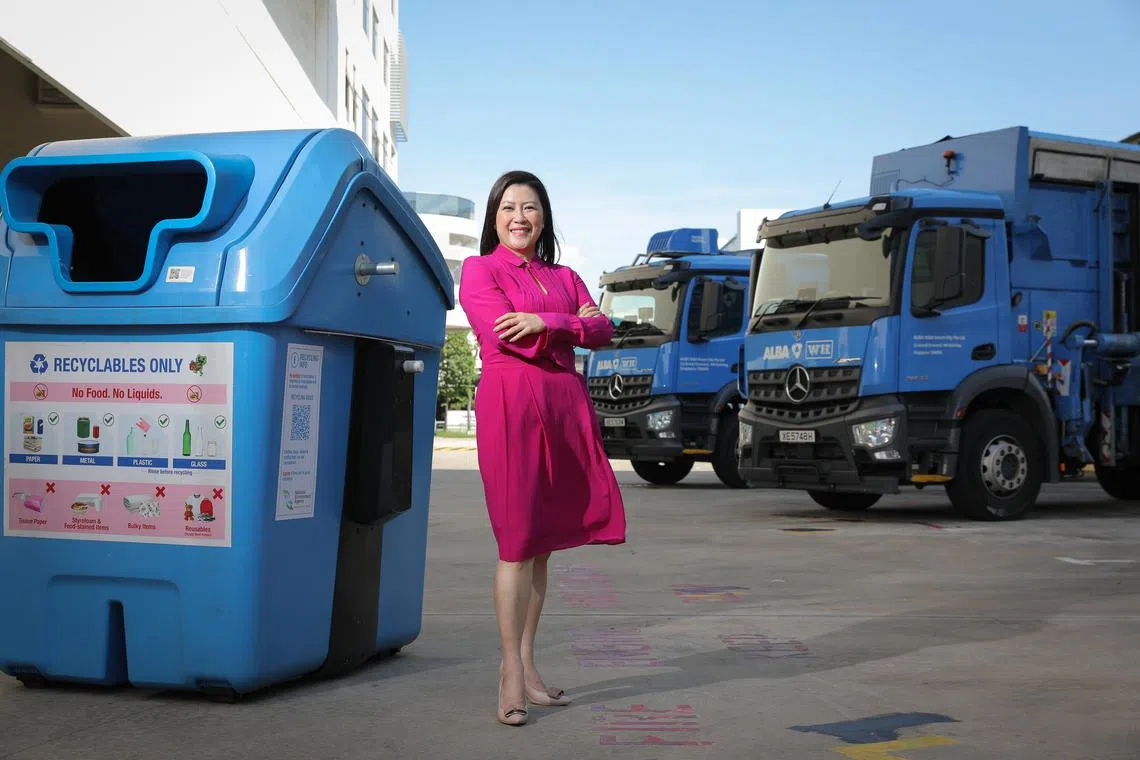S’pore firms braced for turbulent 2025 after a year hunkering down on transformation
Sign up now: Get ST's newsletters delivered to your inbox

The positive scenario is if investors see Singapore as a safe haven, while more local companies scout opportunities overseas.
ST PHOTO: LIM YAOHUI
SINGAPORE – Companies in Singapore are bracing themselves for turbulence in 2025 after weathering a year of business re-engineering in 2024.
The moves were not by choice, but came as a result of high business costs and talent shortages that forced enterprises to put immediate growth plans on hold to focus on fortifying themselves, industry players said.
While the overall economy improved in 2024, some businesses chose to hunker down, given the global uncertainties and cost pressures, said Ms Joanne Tan, deputy managing director for industry at Enterprise Singapore.
In this “watch-and-see” mode, however, they were nevertheless doubling down on investments in artificial intelligence (AI), digitalisation and sustainability measures to comply with global standards, she added.
There are over 300,000 small and medium-sized enterprises (SMEs) in Singapore, accounting for 99 per cent of enterprises here.
A Singapore Business Federation (SBF) survey noted that 7 per cent more businesses fine-tuned their digital operational processes in 2024, compared with in 2023.
Smaller firms also made efforts to shore up resilience, innovation and productivity, said the Association of Small and Medium Enterprises (ASME).
But performance has been mixed, leaning towards “poor or neutral”, said ASME president Ang Yuit.
“High operating costs, cautious client spending and inflationary pressures weighed heavily on many SMEs, particularly in sectors like food and beverage, and retail,” he added.
Singapore’s economy is forecast to grow 3.5 per cent in 2024, better than earlier forecasts. Official estimates, however, are weak for accommodation, retail trade, and food and beverage services.
Economists project growth to be at a “broadly similar pace” in 2025, a hint of what is to come for SMEs, which produce over 40 per cent of Singapore’s economic output.
Mr Ang said: “The 2025 outlook is not very optimistic, with the majority seeing a repeat of 2024 performance or weaker performance.”
US-China trade dynamics, new tariffs and the Middle East situation add uncertainty, while costs and finding workers remain difficult, he noted, adding that SMEs also face competition from regional players and technology-driven start-ups that leverage AI.
SBF chief executive Kok Ping Soon expects 2025’s agenda to be dominated by geopolitical dynamics and regional stability: “The potential for increased tariffs, trade barriers and shipping line disruptions could upset supply chains, leading to higher costs and reduced competitiveness for SMEs that engage in cross-border trade.
“Singapore’s strategic location as a trading hub may be threatened if regional conflicts escalate, potentially deterring foreign investment.”

SBF chief executive Kok Ping Soon expects 2025’s agenda to be dominated by geopolitical dynamics and regional stability.
PHOTO: LIANHE ZAOBAO
The positive scenario is if investors see Singapore as a safe haven, while more local companies scout opportunities overseas, he said.
SBF’s survey found that 85 per cent of businesses engaged in the region in 2023 were showing a growing interest in Asean, beyond the American and Chinese markets.
Mr Koh Kar Siong, group head of corporate and SME banking at DBS, projects that falling interest rates in 2025 will increase funding, while more supply sources will alleviate costs.
“We expect continued momentum from corporate China Plus One strategies as companies look to diversify their supply chains,” he said, referring to firms hedging risks by operating beyond China.

Mr Koh Kar Siong, group head of corporate and SME banking at DBS, projects that falling interest rates in 2025 will increase funding, while more supply sources will alleviate costs.
PHOTO: BT FILE
Companies such as waste management firm Wah & Hua met a range of challenges in 2024 and are readying their plans for 2025.
The firm optimised its route planning, reducing fuel use, delivery times and carbon emissions, while boosting employee productivity.
CEO Melissa Tan described joining Enterprise Singapore’s Scale-Up programme as transformative, leading it to take a hard look at operations and think outside the box.

Wah & Hua CEO Melissa Tan described joining Enterprise Singapore’s Scale-Up programme as transformative, leading it to take a hard look at its operations and think outside the box.
PHOTO: BT FILE
The firm now focuses on higher-margin services, operational efficiency, sustainability trends and growth in emerging markets.
EtonHouse International Education Group grappled with higher operational costs, a taxing search for qualified educators and closures owing to site redevelopment or land sales in 2024.
Together with the Government, it developed an AI-powered lesson planner that helps teachers customise lesson plans and trim preparation time, hence raising productivity. It also implemented flexible work guidelines.
The group, which has more than 100 schools in nine countries, will open in Saudi Arabia in 2025, and in Thailand in 2026.
Mr Raymond Lee, chief operating officer of digital security provider V-Key, counts the firm’s milestones in 2024: “Our major customers renewed their contracts, and we launched two new solution offerings and contracted more new customers, all while maintaining our staff strength across the company.”
The firm tackled rising cyber-security talent costs in Singapore by expanding its teams in Vietnam and India, on top of its core operations here.
Mr Lee said businesses inevitably have to navigate South-east Asia’s political landscape, which has always been and will continue to be turbulent.
“One thing that stood out in 2024 that caught us by surprise was the pace at which digital threats were permeating every level of the ecosystem. Government, hospitals, banks, enterprise, and even cyber-security companies, were not excluded from scandal,” he added.
Generative AI, biometrics and threat intelligence are in the company’s product plans, Mr Lee said.
Mr Yogesh Sangle, global head for international money transfer firm Instarem, said: “Overall, the big theme for SMEs in 2024 was doing more with less, whether that meant fewer resources or tighter budgets.”

After a cautious year, Mr Yogesh Sangle, global head for international money transfer firm Instarem, predicts high action overseas for local enterprises.
ST PHOTO: JASON QUAH
After a cautious year, he predicts high action overseas for local enterprises.
The anticipated fall in interest rates will energise businesses to venture into new markets or invest in capabilities that support their expansion, he said.



